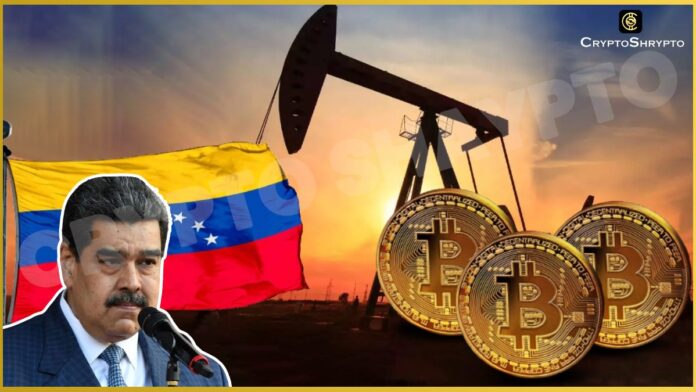April 18, 2024 — Venezuela’s national oil company, Petróleos de Venezuela, S.A. (PDVSA), is reportedly considering Tether (USDT), the world’s largest dollar-pegged stablecoin, to mitigate the impact of new U.S. sanctions. According to Reuters, PDVSA aims to use USDT to prevent the freezing of its foreign bank accounts. This development highlights a strategic shift in how sanctioned entities might seek to circumvent financial restrictions using cryptocurrency.
PDVSA, Venezuela’s state-owned oil giant, is at the center of these reports. Tether, the issuer of USDT, did not respond to requests for comment about its potential involvement or knowledge of PDVSA’s plans.
PDVSA is exploring the increased use of USDT to sidestep challenges posed by U.S. sanctions, which include the freezing of the company’s foreign bank accounts. The company reportedly uses intermediaries in crypto transactions to obscure the trail of payments and transfers on the blockchain.
These developments have been unfolding amid ongoing political and economic tensions, with the latest sanctions and PDVSA’s strategic shift to cryptocurrency reported just recently by Reuters.
PDVSA operates primarily in Venezuela but has historically conducted extensive international business, making the impact of sanctions particularly significant. The use of USDT is intended as a global strategy to access international markets despite U.S. sanctions.
The U.S. has imposed sanctions on PDVSA in an effort to pressure the Venezuelan government over issues including corruption and human rights abuses. PDVSA’s move towards using USDT is aimed at maintaining liquidity and continuing international trade in light of these financial barriers.
PDVSA plans to leverage Tether to facilitate transactions that might otherwise be blocked by sanctions. By using USDT, which is tied to the value of the U.S. dollar, PDVSA may be able to preserve some stability in transactions and protect against the volatility of other cryptocurrencies. This strategy involves using intermediaries to conduct transactions in a way that makes tracking via the blockchain more difficult, thereby obscuring the financial flows from sanctions watchdogs.
This situation illustrates a growing trend where entities under sanctions are increasingly turning to cryptocurrencies as a means to circumvent economic barriers imposed by global powers.




